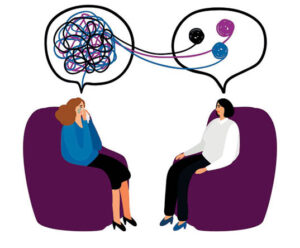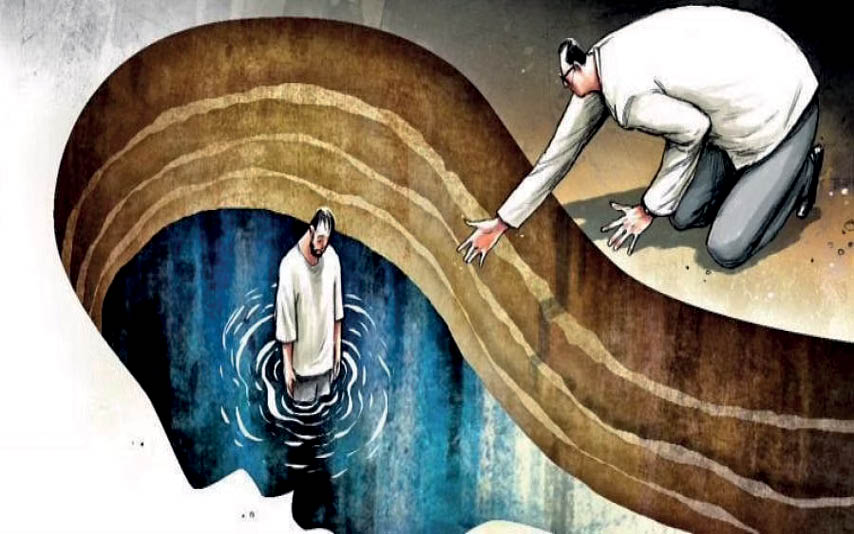Psychologist Mehezabin Dordi practices at the Sir H N Reliance Foundation Hospital, where she assesses, formulates and implements comprehensive therapeutic interventions for patients with psychological / psychiatric problems, and others. Connect with her: dordi.mehezabin@gmail.com
 Therapy (or psychotherapy) can be
Therapy (or psychotherapy) can be
A helpful and fulfilling experience. Therapy (or psychotherapy) is meant to be a safe and private relationship between a therapist and the patient. However, because therapy is private, it is easy to believe the various myths and misconceptions concocted around the vague idea of what therapy truly is and can achieve. Unfortunately, these myths and stereotypes make people lose out on the help which could lead them to mental wellness.
Here are some common myths that hold people back from reaching out for therapy:
Myth 1: You Have To Be At Your Worst – ‘Rock Bottom’ Or ‘Crazy’ To Start Therapy… Many believe therapy is for those who are insane or those who have hit rock bottom or then for those who are ‘out of control’. Truth is, people consider therapy successfully, for various reasons including: Personal growth; support when going through a rough patch; optimising their potentials; to change a habit, health and lifestyle corrections, etc. Most importantly, they go because they want to make a change, but don’t know how to start. A therapist helps you spot the signs and work towards handling the situation before it gets the better of you.
Myth 2: I Can Fix This Myself Without Therapy… In a culture like ours, seeking help from a mental health professional is often viewed as a stigma and equated with weakness. The reality is that getting help, especially for mental health, is a sign of intelligence, strength and courage. We often hesitate to take help from anyone when it comes to talking about mental health, but we take no shame in showing a broken leg to a doctor. The same should be true for our mental health too – especially because our brain is the most important organ of our body.
Myth 3: Therapy Is Too Expensive… We tend to believe that therapy is for the rich and we can’t afford it. However, not all therapy sessions are expensive – you always have a choice to opt for something affordable yet very helpful, especially with digital healthcare platforms attempting to make therapy affordable and safe.
Myth 4: Therapy Is Forever… Therapy is an ongoing process – you are in charge of determining when you want to start and end it. As few as one to four sessions can help you make significant changes in your life. And the benefits go beyond relieving stress and anxiety. Short-term therapy can help you improve relationships, brush up parenting skills, sleep better, manage your weight, adopt healthy habits, and become more effective in pursuing your goals.
Myth 5: Therapists Just Listen… While listening is a critical part of the job, therapeutic sessions include asking targeted questions, helping you set goals and teaching skills that help you meet those goals. Your therapist may even assign homework to help you practice your new skills.
Myth 6: Therapy Makes Clients Feel Instantly Better After The Session… This scenario might be convenient for a storyline, but nothing is further from the truth. Clients are not cars, and therapists aren’t mechanics. Clients are active participants while therapists help them face and uncover whatever is bothering them. That process takes time and can be initially difficult and painful. Having feelings stirred up is part of the therapeutic process. When psychotherapists describe the healing trajectory, we often say sometimes things get worse before they get better.
Myth 7: Therapy Puts An Over-Emphasis On Childhood… The relationship with your parents and our childhood plays a significant role in our life. Most people think that in order to have been affected by their childhood, there would be some form of abuse inflicted. But it’s never black and white. People start therapy because they have an issue in their adult life that they want to talk about with a professional. Therapy brings an objective, bird’s-eye perspective to help clients see the water they’re swimming in and allow them to take responsibility for their lives. Professional therapists never admonish, blame or shame clients into change.
The bottom line is to remember that it’s okay to not be okay – however, don’t hesitate to seek help!
- Myths And Facts About Therapy - 18 June2022
- Nominee V/s Legal Heir: Who Wins? - 18 September2021
- Importance Of Successive Nomination During The Pandemic - 19 June2021
